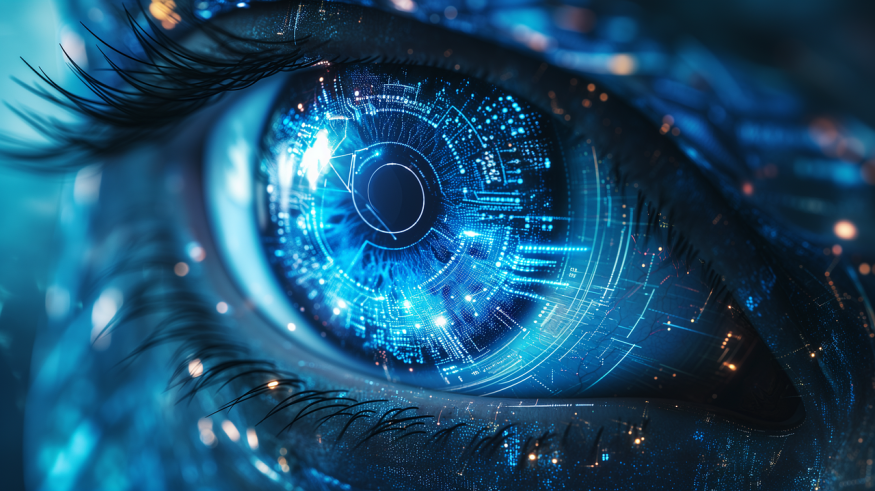
Much has been written and said about the tremendous power of artificial intelligence (AI) and the potential dangers it poses to jobs, privacy, national security and humanity itself.
Just as Robert Oppenheimer and his peers had to grapple with the ethical implications of developing the first fully functional nuclear weapon, those deeply involved in advancing AI technologies have called for caution and a slowing of the pace of advancement to give more time to assess and understand this powerful new force.
Every sector of the economy and society will be impacted by AI. From medicine, to the environment, government policy decisions, case law, economic forecasting and of course, rapidly evolving technology hardware and software.
But, AI is not only a tool that will significantly enhance innovation in those traditional sectors. It also has the potential to create positive disruption on a scale, unlike anything we've ever seen before. It can serve as a catalyst for creating equitable and sustainable communities and generating positive social impact on a massive scale across the globe.
At a minimum, AI is already helping not-for-profit organizations with chatbots and virtual assistants that can offer users guidance and support around the clock. This is critical to making mental health crisis lines and addiction recovery services available to underserved populations at a fraction of the price, thereby expanding their reach and impact exponentially.
Predictive modelling can help identify in advance where the effects of climate change will be seen and help take corrective action like moving populations away from areas identified as vulnerable to flooding or severe storms.
AI modelling can also help better interpret medical scans and predict cancers before they occur, respond to disasters like forest fires by anticipating where fires might spread and how best to contain them and protect endangered species by better identifying environmental and human-made hazards.
Public health officials can better determine how to respond to a disease outbreak by providing real time analysis of disease progression and transmission.
AI-powered Natural Language Processing (NLP) technologies are providing seamless translation tools so doctors can assess patients in underserved or remote communities, in any language, in real-time.
Artificial Intelligence is the most disruptive force of our era, poised to redefine every industry and every element of modern society. It is crucial that we embrace this shift, demystify AI, and make its potential clear and accessible.
To that end, it is also essential that governments from around the world be involved in regulating the rapidly emerging sector to ensure it remains free from profit motive and those with nefarious intentions.
There are parallels between AI and the Global Positioning System (GPS), which was originally developed in the 1970s and 80s by and for the exclusive use of the United States military.
But U.S. President Reagan, and later President Clinton, recognized the enormous good that could come from opening up the system to the world.
Today, airline pilots, delivery drivers, first responders, and moms driving their kids to soccer practice all rely on the system that was originally meant for use only by the U.S. military.
In a similar vein, it is critical that AI be made as open as possible to all and used only for good. Already, we are seeing the possibility that the AI space can be bought up by a few companies who keep AI breakthroughs to themselves for a competitive advantage.
For example, companies like Nvidia are buying up smaller firms making AI breakthroughs, like Synthesia, and are beginning to corner the market. While primarily a chip maker, Nvidia's expansion into the AI space has made it one of the most valuable companies in the world. With over $2.2 trillion in market capital, it now only trails Microsoft and Apple in total worth.
Had the U.S. sold the GPS system to a private company, it is possible that there would be huge costs charted to private citizens, companies, and governments to access the system and its data.
On the safety and security front, the rapidly increasing level of realism of deepfake videos could be used by bad actors in the political world to influence the outcome of elections or create national security concerns by generating realistic but false content.
The vile Taylor Swift deepfake images demonstrated that AI can also be used to harm individuals, with disturbing content being generated and spread around the globe on social media in a matter of hours.
These concerns speak to the urgent necessity to create strict regulations on the accessibility and use of AI technologies. Just as the International Civil Aviation Organization regulates the safe and secure travel of airline operations around the world, a similar international body is suggested for the proper oversight of AI.
While individual national governments and the EU have begun to undertake this work, it is imperative that it advances quickly and uniformly, given the pace of the technology they are trying to harness.
We are on the precipice of a transformative new age in humanity—the AI age. It is ours to decide whether the power of AI will be accessible and used for good or controlled by a small network of individuals driven by profits and unscrupulous goals. Finding the right balance between fostering innovation and protecting the public good will not be easy, but it is imperative that we dedicate our full resources to getting it right quickly.
—Marc Kielburger, LL.B., CM, is an NYT best-selling author, member of the Order of Canada, and the co-founder of Legacy+, which builds large-scale movements and legacy projects.
© 2025 ScienceTimes.com All rights reserved. Do not reproduce without permission. The window to the world of Science Times.












